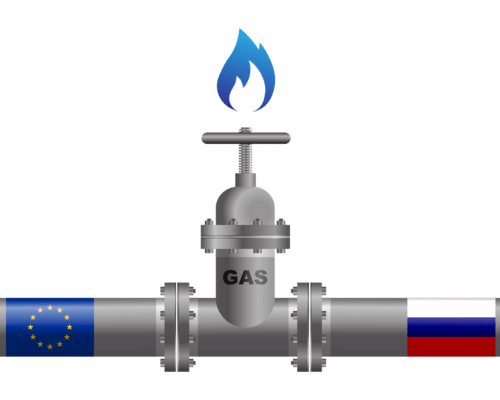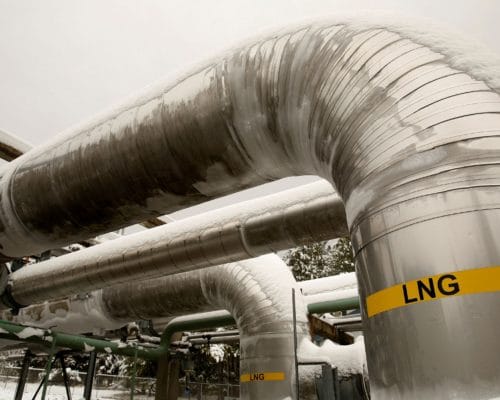Natural Gas
Indoor Air Pollution – What a Household Can Do?
Indoor air pollution is a leading cause of death, yet it is relatively easy to limit some of the main contributors found in homes. The lack of education and access to safer energy infrastructure is one of the main roadblocks. It falls on governments and communities to facilitate local change.
The Transition to Clean Cooking: How to Replace Gas?
While gas has long been considered a clean cooking fuel, research shows that it can impact health. This, paired with the high gas prices, the global net-zero journey is making countries around the world look for alternatives. Induction and electric stoves can be the solution. And the renewable energy transition is starting to prove it.
Cooking With Gas – The Full Story
Natural gas is the most popular cooking fuel worldwide, particularly in developed countries. Natural gas use rates will likely increase over the next several decades as more supporting infrastructure becomes available. However, the combustion of natural gas leads to several harmful greenhouse gases, which have direct health and environmental effects.
Using Gas for Cooking in Asia: History, Drawbacks And Future
In the search for cheaper and cleaner cooking alternatives, countries across the world are replacing gas stoves with induction and electric appliances. While low and middle-income countries in Asia might find this shift challenging at first, the path forward is clear – dirty and expensive fuels will make way for cleaner and cheaper alternatives.
High LNG Prices in Asia: Risk Causing Permanent Demand Drop
The demand for LNG in Asia is plummeting. Developing nations can't bear with the high gas prices and are actively looking toward renewables. Even fossil fuel stewards are starting to have second thoughts. And if the high gas prices continue, which seems likely, the demand drop might be irreversible.
Korean and Japanese Companies in Vietnam Are the Main Gas Expansion Advocates
The pressure from Japanese and Korean companies on Vietnam to move in the direction of gas expansion risks tarnishing the country's clean energy progress and locking it into a future of energy instability, high electricity prices and stranded assets.
Vietnam’s Block B Gas Project – the Potential Impact on the Involved Parties
Vietnam has a vast potential for wind and solar power. Yet, the country pushes ahead with plans like the Block B gas project. In a world of highly-unpredictable gas prices where the end goal is net-zero, such a step can prove costly for all parties involved.
Asia’s Banks Push the Region Towards Fossil Gas Future
After following the money trail behind the fossil gas expansion in Southeast Asia, a new report by CEED finds that thanks to the significant financial support, nations in the region are locking themselves into a fossil gas future.
Oil and Gas in Asia – Current State and What Lies Ahead for the Industry
The oil and gas industry outlook in Asia is set to rise, yet as clean energy demand rises, oil and gas look set to follow coal's demise.
Hyundai Backtracks On RE100 Pledge With New Ulsan LNG Plant
After joining RE100 and committing to 100% renewable energy, Hyundai Motor Company released plans for a new LNG facility. This directly contradicts its RE100 pledge and raises serious accusations of greenwashing. The move is surprising for the second-largest company in South Korea and is seen by many as a poor publicity choice and a financial risk. The project is currently on hold but remains a possibility.

Europe’s Energy Crisis 2022: Lessons for Asia
Asia is in the unique position to witness the pitfalls of poor energy strategy and how much it costs. If it proceeds to repeat Europe’s mistakes, then Asia has no one else to blame but itself.

The Philippines’ Presidential Candidates 2022 Should Pursue Renewables and Halt LNG
Halting LNG expansion plans may be against the dominant trend in Southeast Asia, but the Philippines' presidential candidates must make the tough decisions if the country wants to mitigate its finance, energy dependence, stranded asset and climate risks.
LNG: The Rise of Liquefied Natural Gas
Liquid natural gas (LNG) is an energy-dense fossil fuel that produces fewer emissions than coal and oil. Many people see it as a "transition fuel" for the global energy transition causing an increase in demand over the past few years. We expect that the upcoming decade will be pivotal in defining LNG's role in the world's future energy mix.

What is LNG Used for?
LNG prices saw record highs in 2021 caused by unprecedented demand. The global impacts of COVID-19 primarily drove the demand, but this appetite for natural gas may continue in the future. Natural gas is a versatile fuel source, and LNG is an effective way to transport it over long distances.
Most Popular
Categories
-
9
-
33
-
126
-
4
-
17
-
43
-
52
-
11
-
10
-
15
-
24
-
6
-
6
-
247
-
195
-
13
-
23
-
1
-
1
-
23
-
38
-
41
-
84
-
18
-
81
-
41
-
17
-
10
-
40
-
41
-
86
-
284
-
21
-
39
-
35
-
10
-
41
-
36

